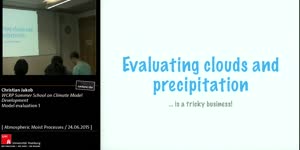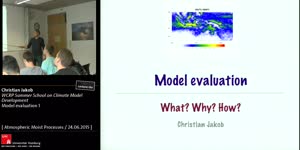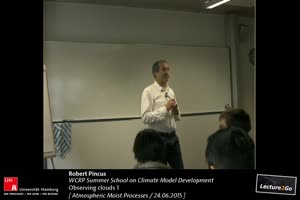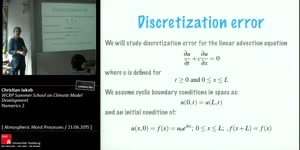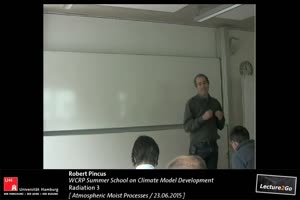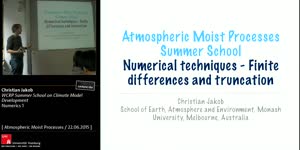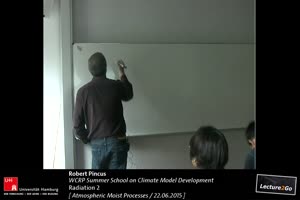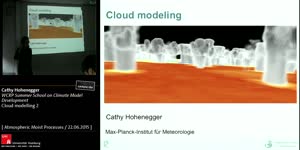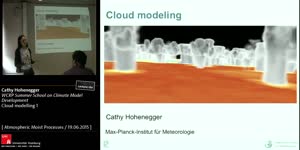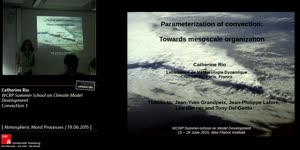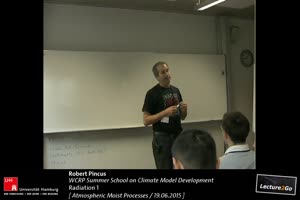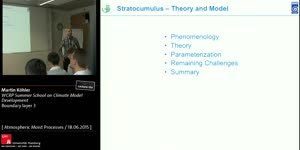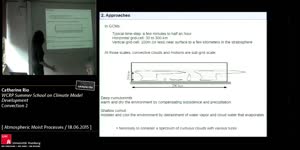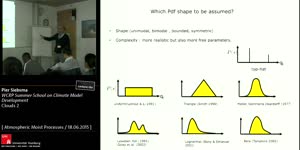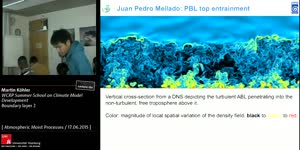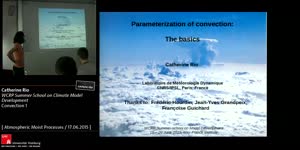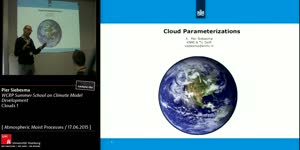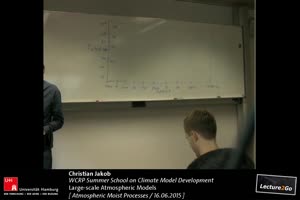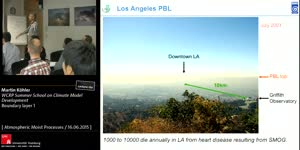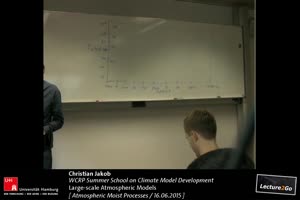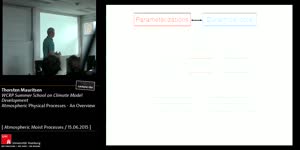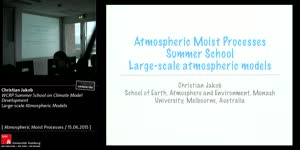Radiation 1 - Robert Pincus - Universität Hamburg
- Lecture2Go
- Videokatalog
- Weitere Einrichtungen
- Max-Planck-Institut für Meteorologie
- WCRP Summer School on Climate Model Development
Videokatalog
Radiation 1
Nearly all predictions of weather and climate are made by computer models – often referred to as ‚Numerical Weather Prediction‘, ‚Climate Models‘ or ‚Earth System Models‘. The WCRP Summer School Series aims at developing an increasing understanding into how climate models are constructed covering the many aspects of simulating the Earth system including atmospheric, land surface, ocean and biogeochemical processes. In 2015 the School will tackle one of the most challenging issues in climate model development, the representation of atmospheric moist processes, ranging from boundary layer turbulence to convection to clouds.
Cloud and convective processes remain a major source of model uncertainty. As a participant of the 2015 Summer School you will learn how these processes are represented in climate models. Through a series of lectures you will be introduced into the theoretical background of the suite of parametrizations involved in modeling moist processes. You will learn how to design, assess and modify such parametrizations. Using the MPI global model you will have the opportunity to discover how model behavior depends on the implementation of the theoretical ideas discussed in the lectures. You will come away from the school with an increased understanding of the cutting-edge research questions involved in parametrizing moist processes and most importantly, you will finally know what’s inside the magic climate model box.
---
Nearly all predictions of weather and climate are made by computer models – often referred to as ‚Numerical Weather Prediction‘, ‚Climate Models‘ or ‚Earth System Models‘. The WCRP Summer School Series aims at developing an increasing understanding into how climate models are constructed covering the many aspects of simulating the Earth system including atmospheric, land surface, ocean and biogeochemical processes. In 2015 the School will tackle one of the most challenging issues in climate model development, the representation of atmospheric moist processes, ranging from boundary layer turbulence to convection to clouds.
Cloud and convective processes remain a major source of model uncertainty. As a participant of the 2015 Summer School you will learn how these processes are represented in climate models. Through a series of lectures you will be introduced into the theoretical background of the suite of parametrizations involved in modeling moist processes. You will learn how to design, assess and modify such parametrizations. Using the MPI global model you will have the opportunity to discover how model behavior depends on the implementation of the theoretical ideas discussed in the lectures. You will come away from the school with an increased understanding of the cutting-edge research questions involved in parametrizing moist processes and most importantly, you will finally know what’s inside the magic climate model box.

